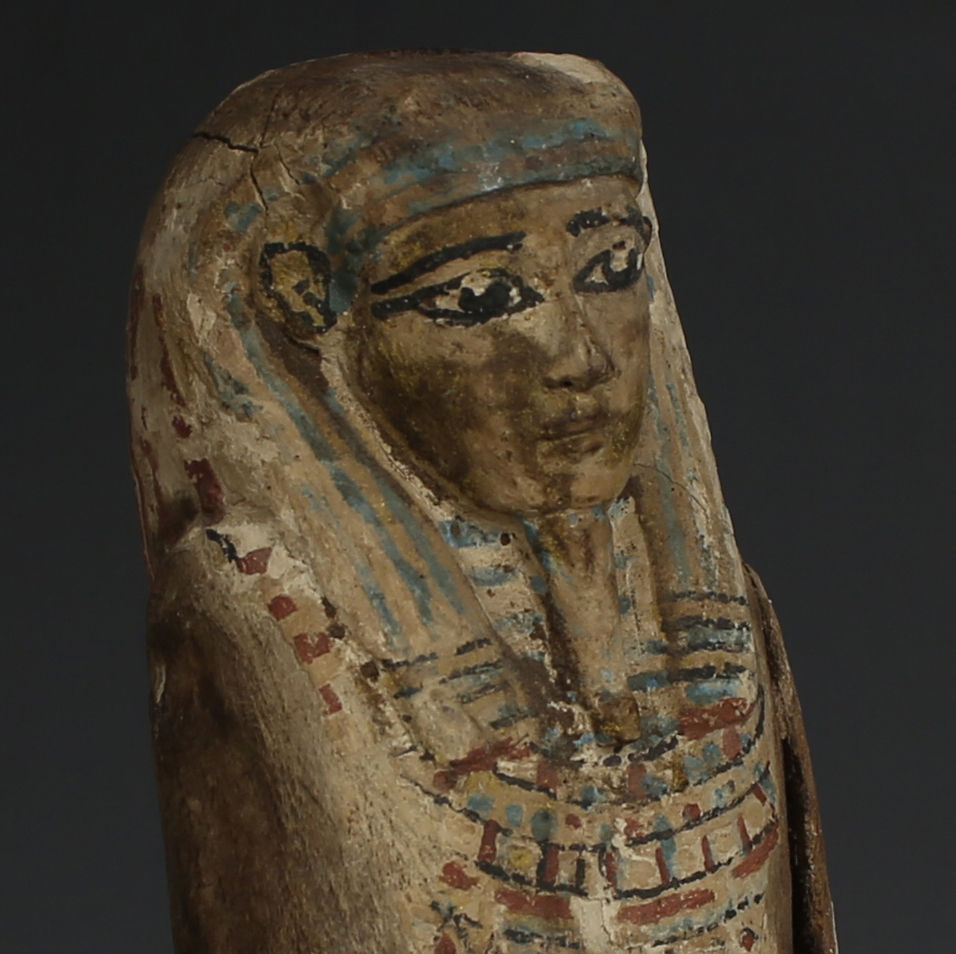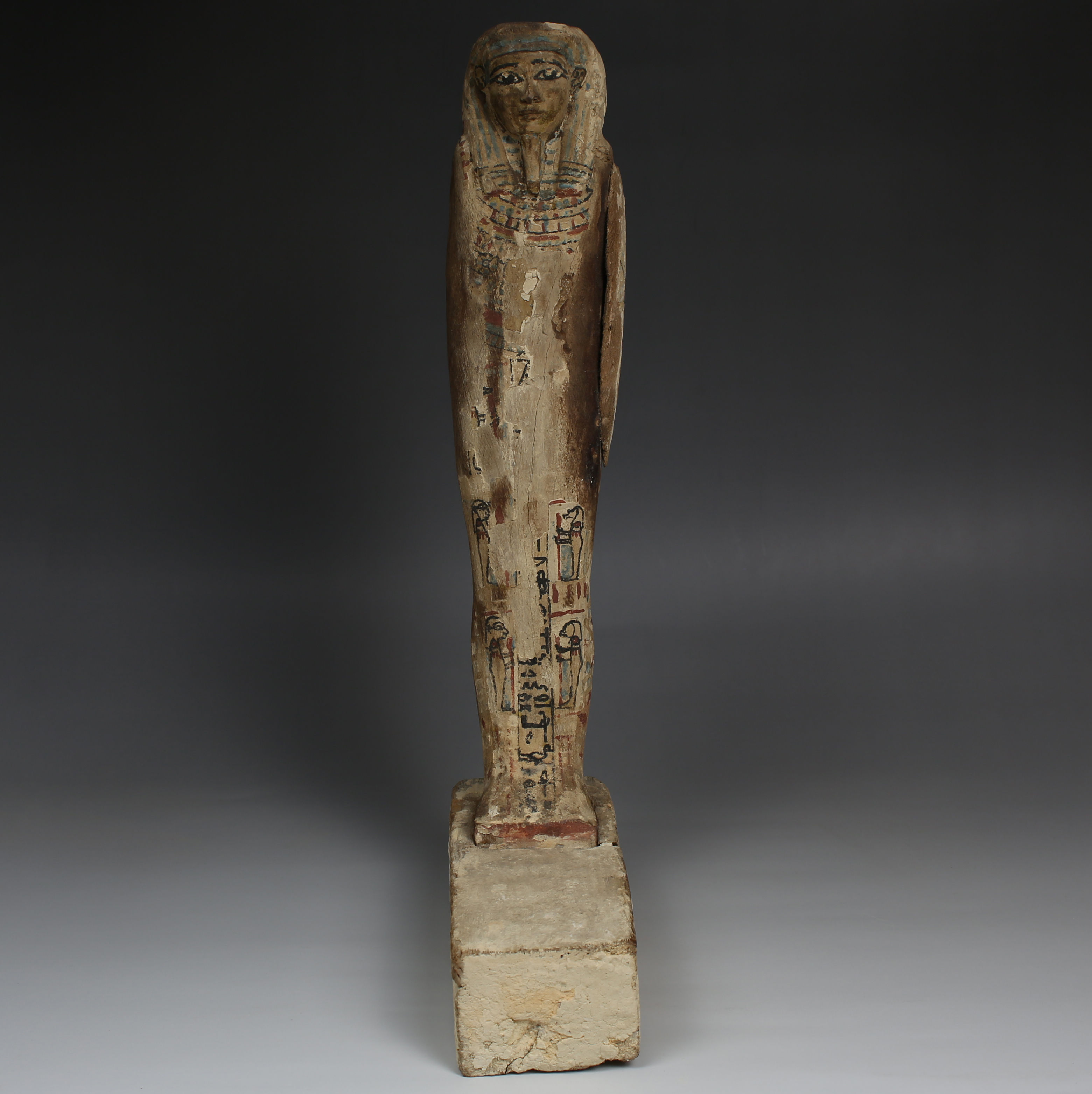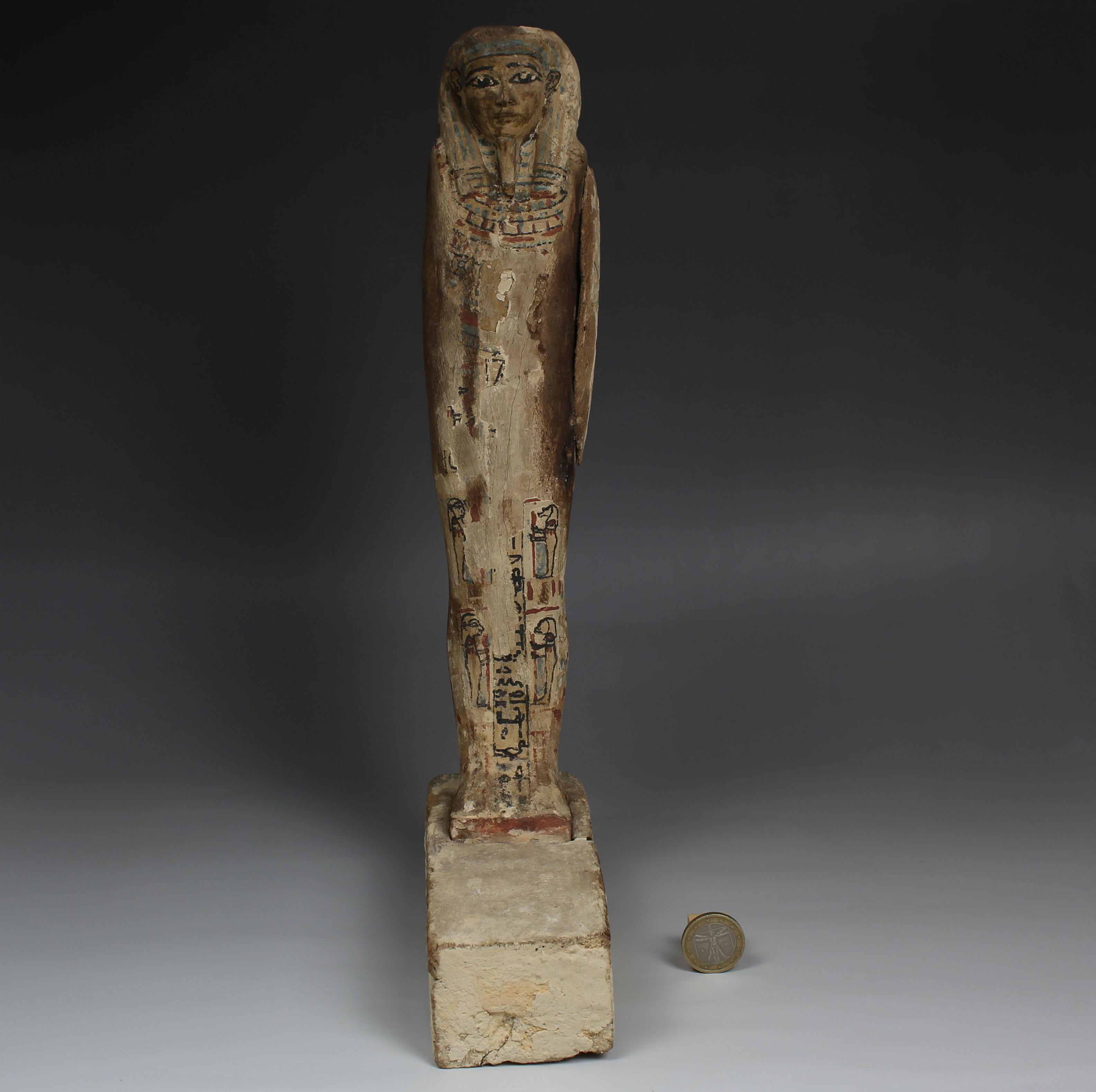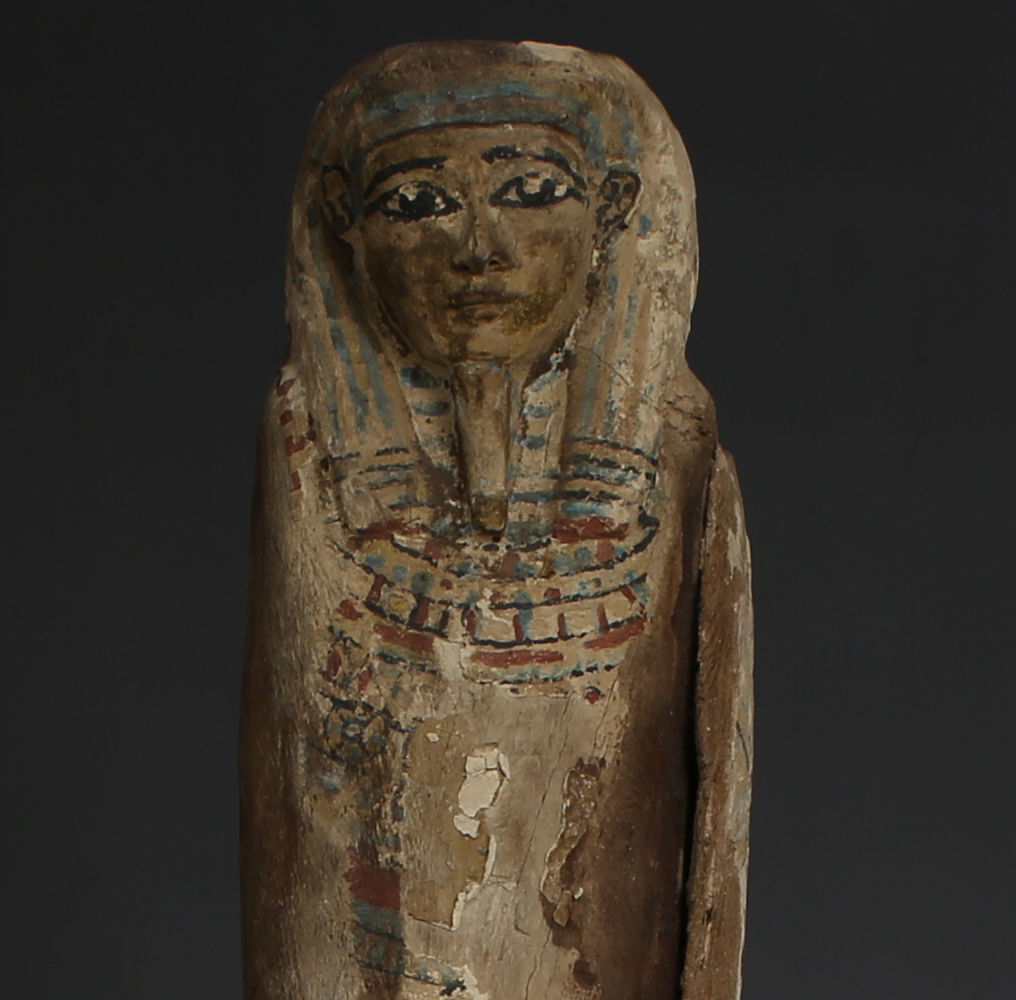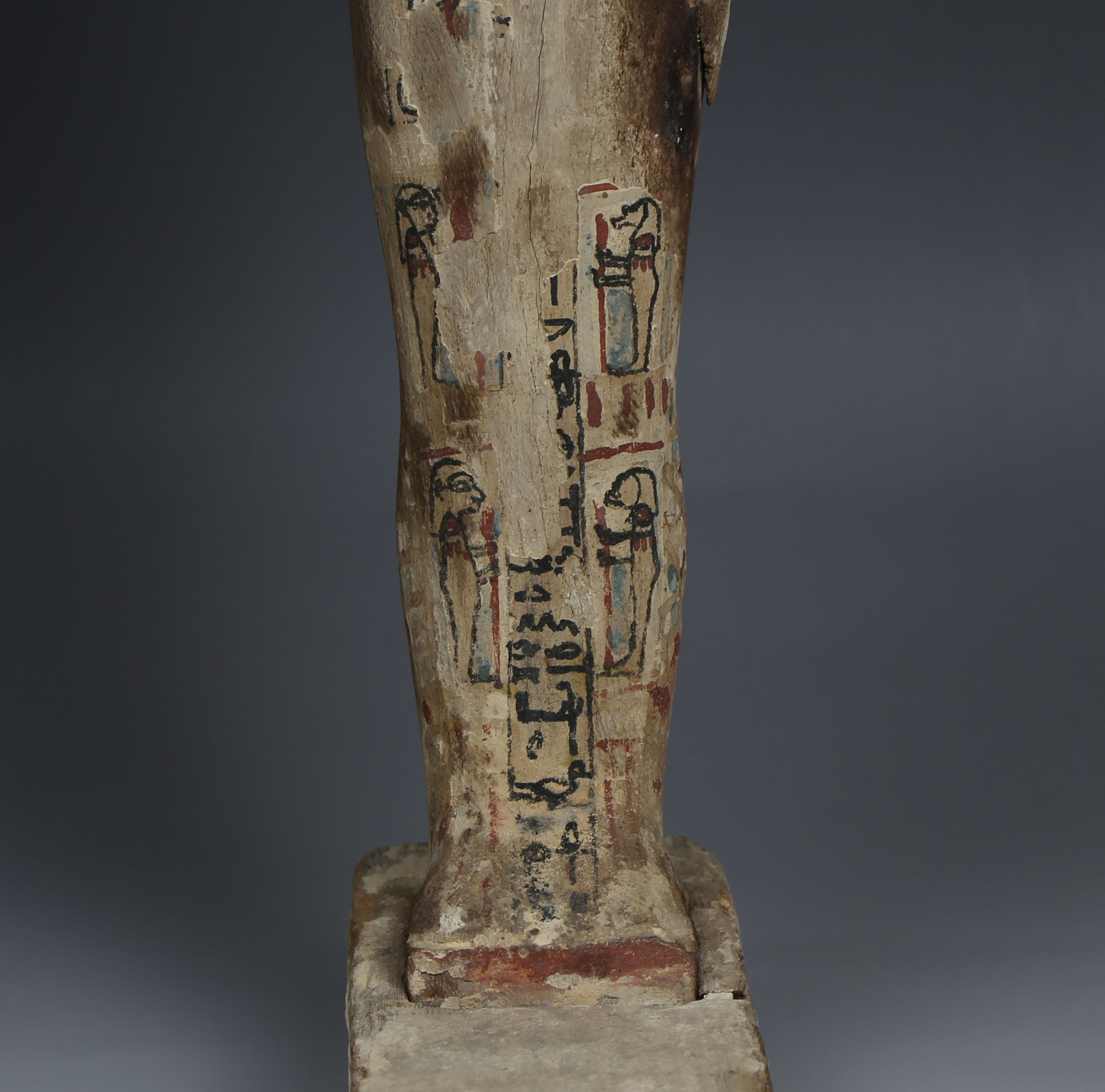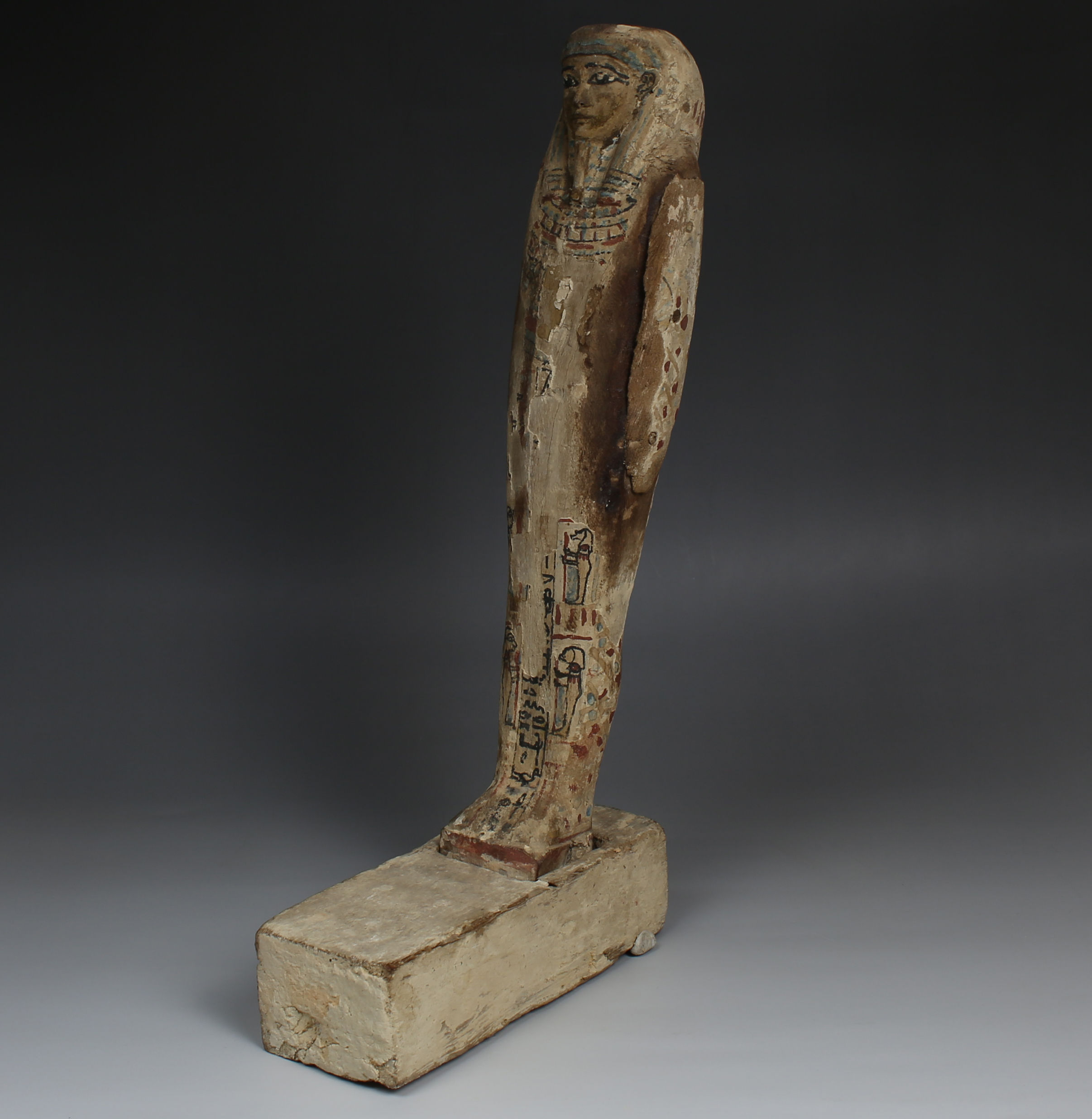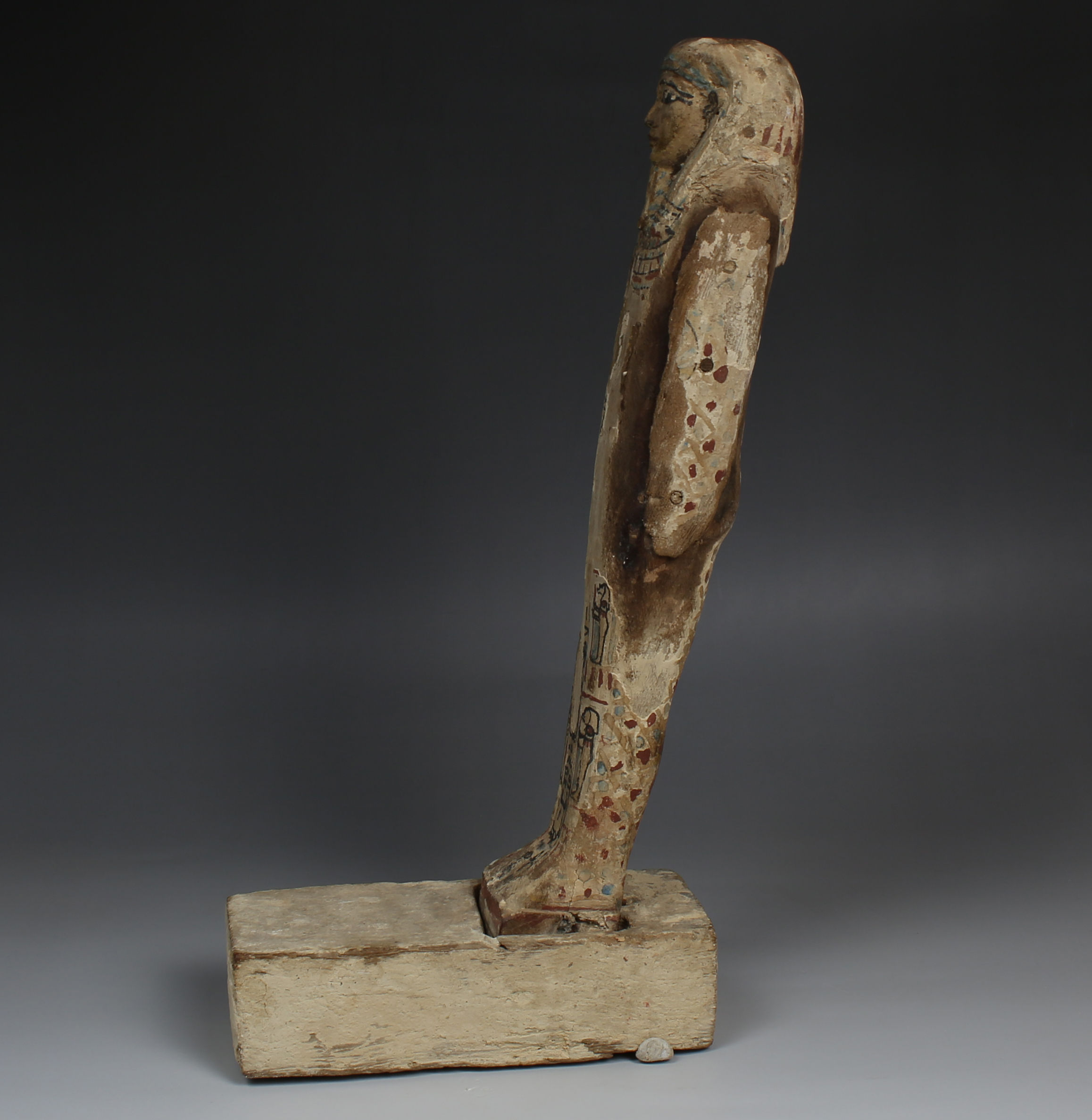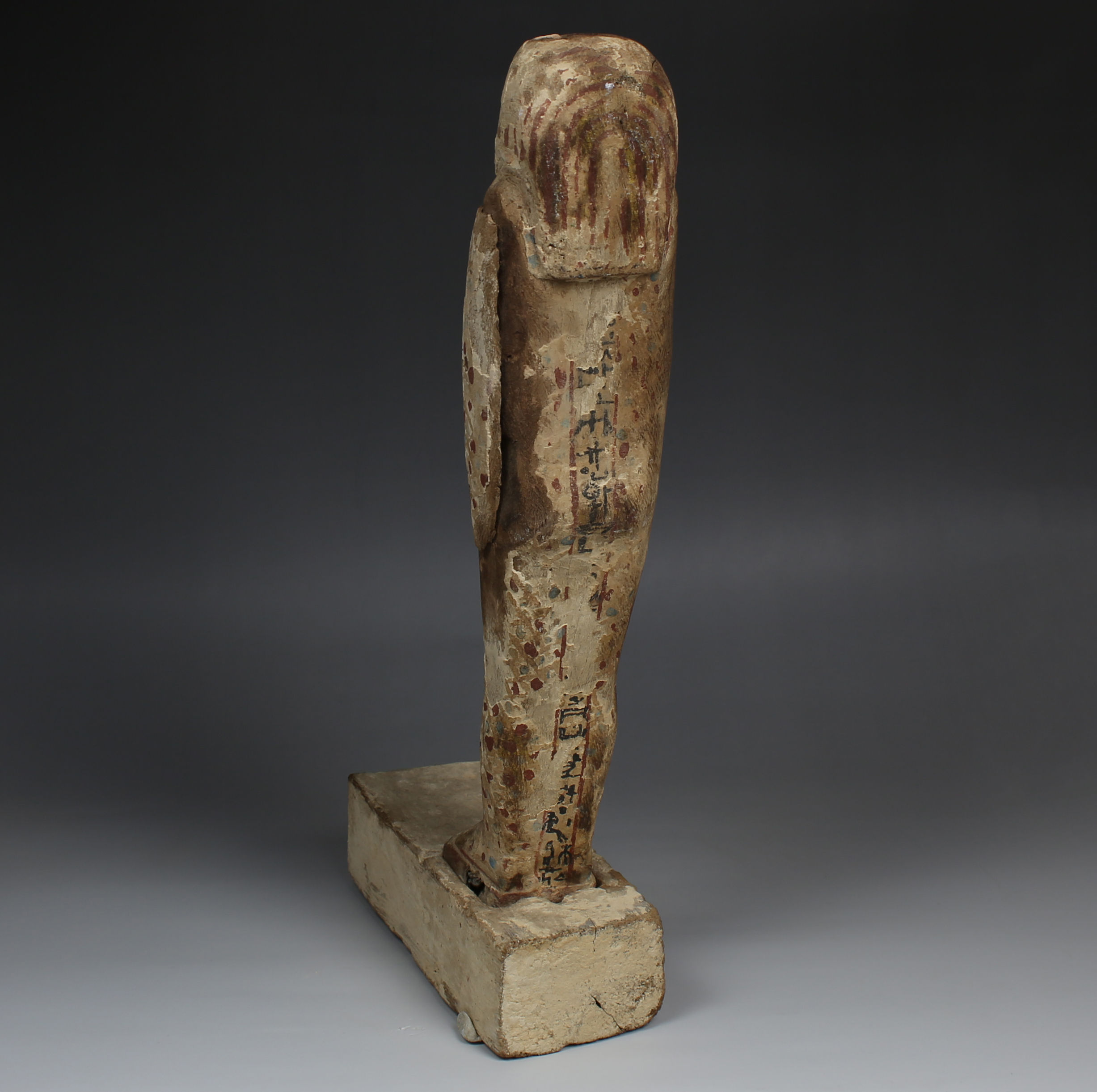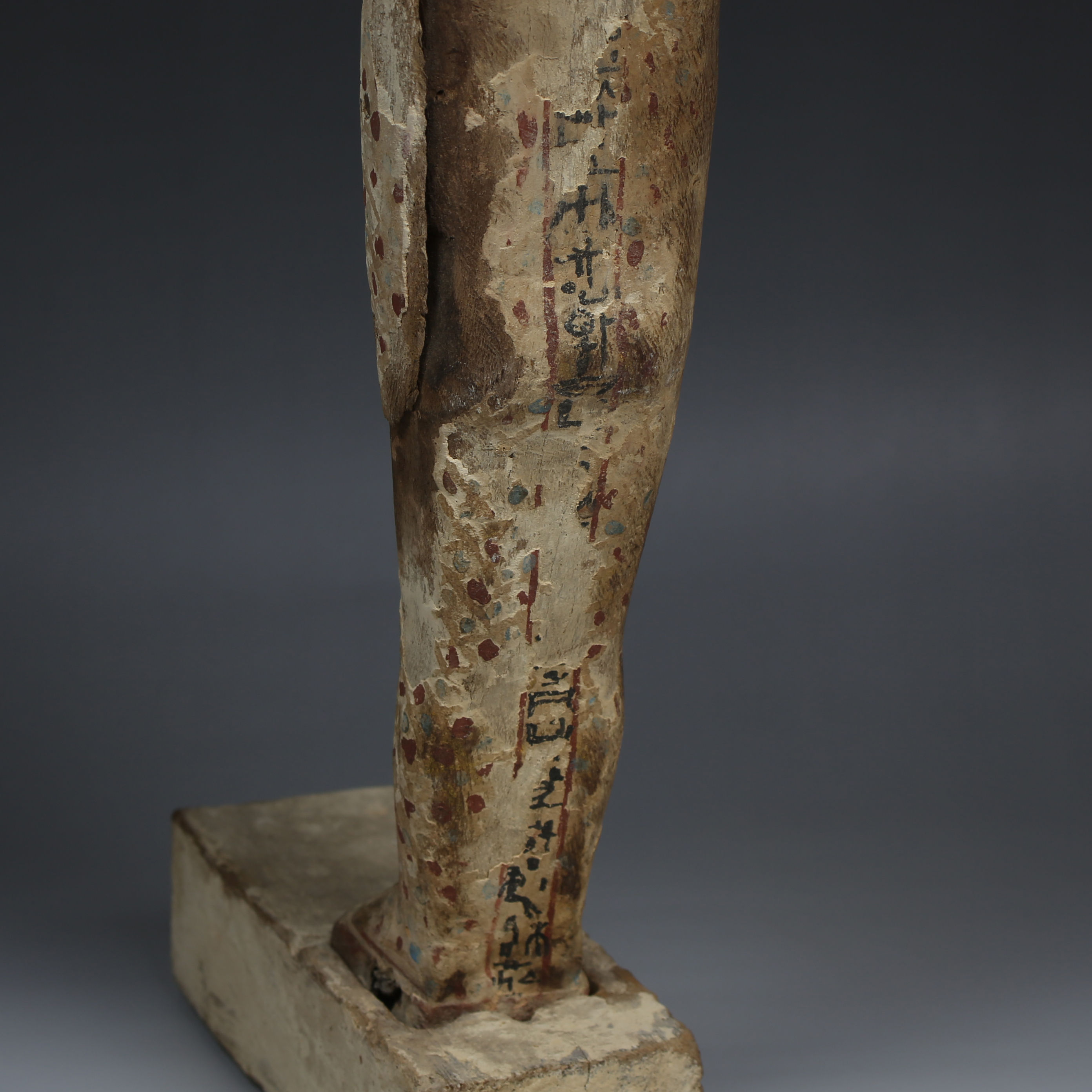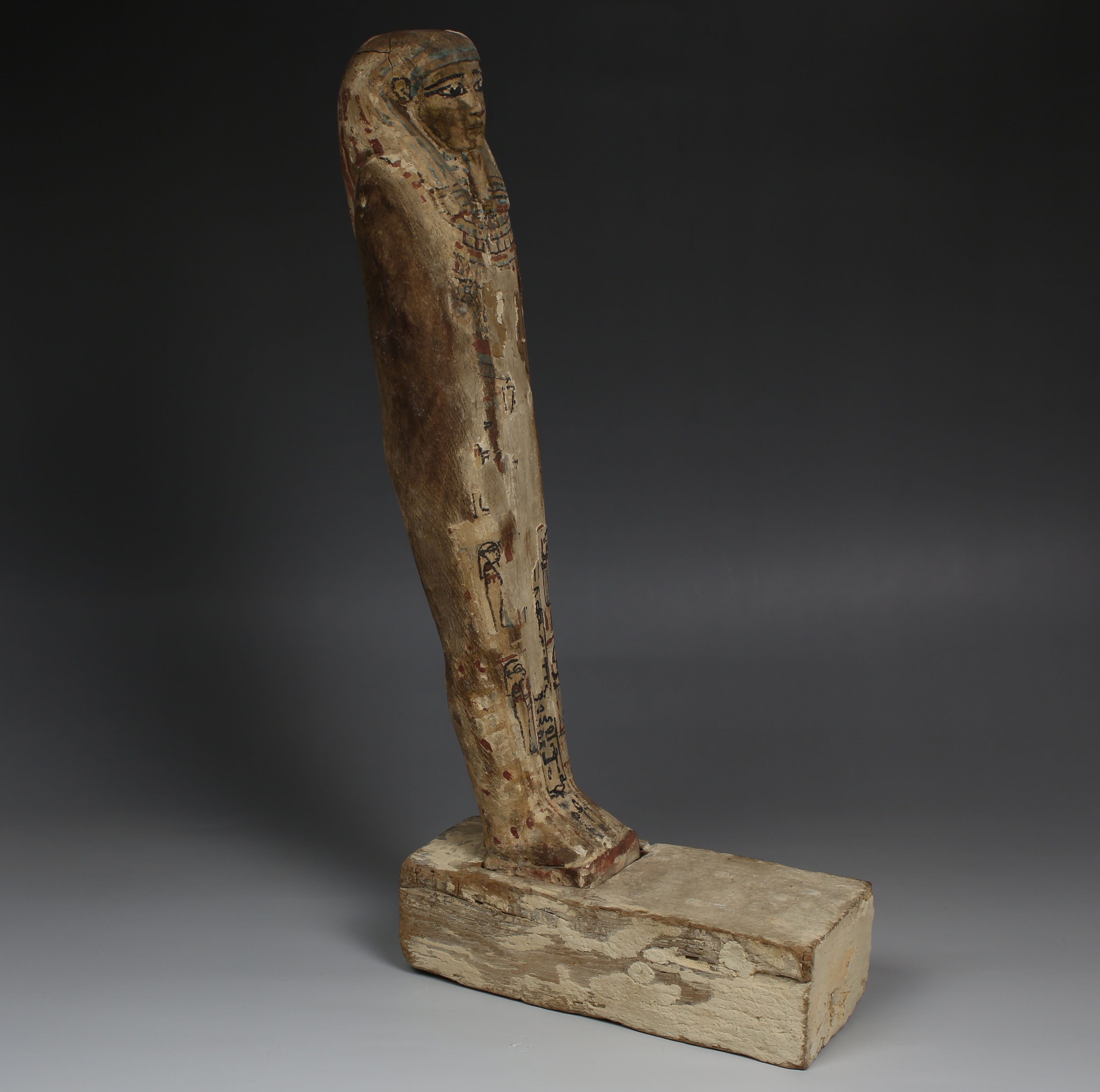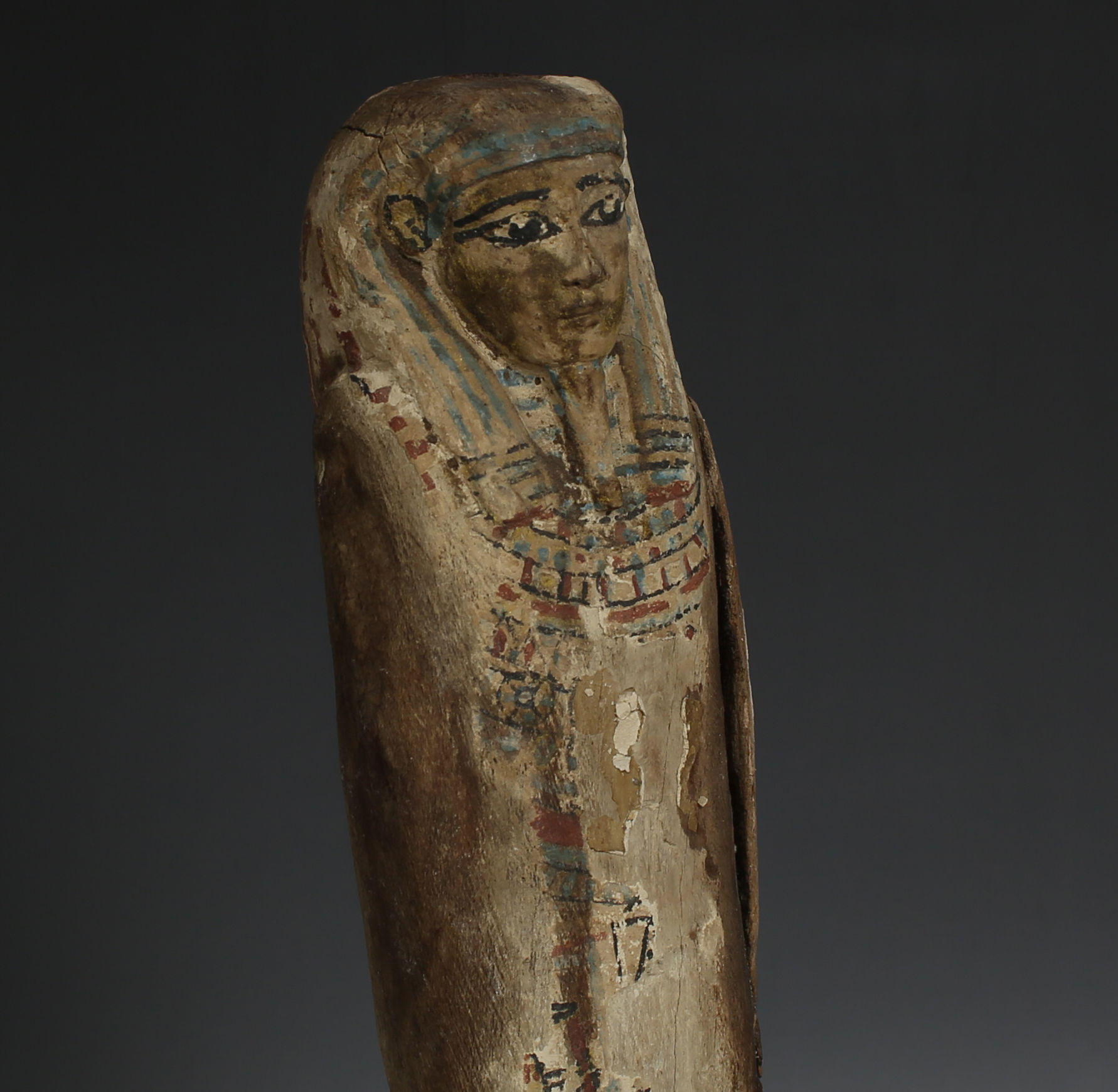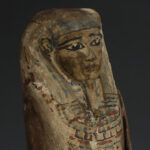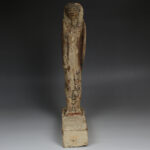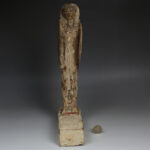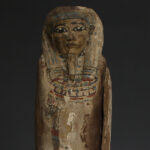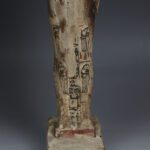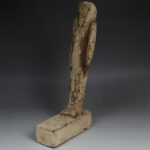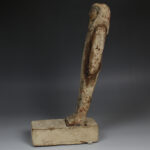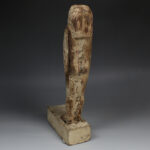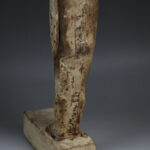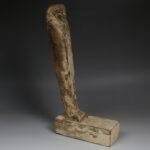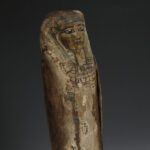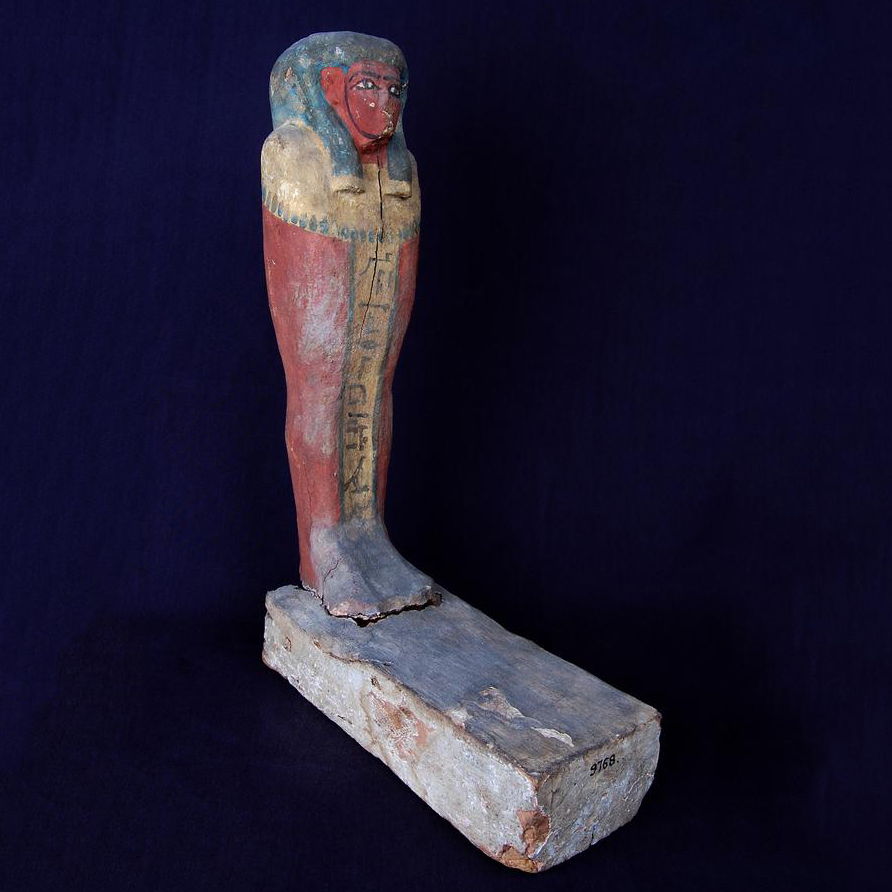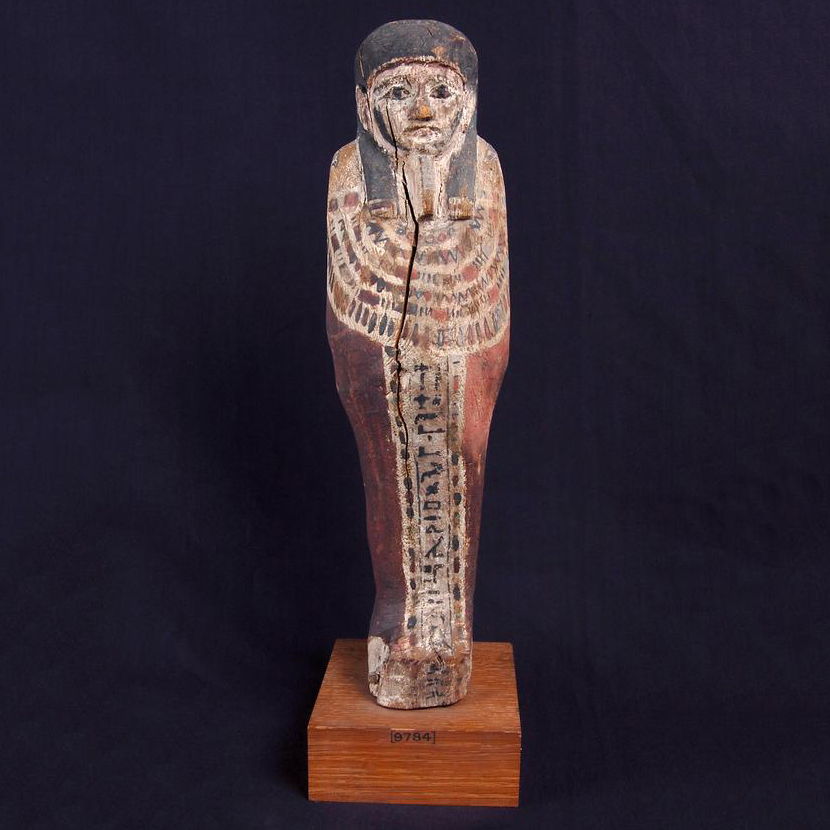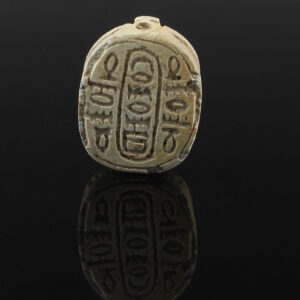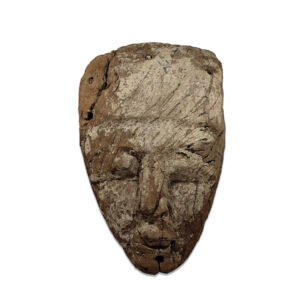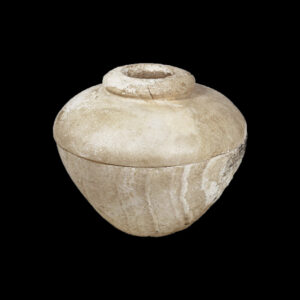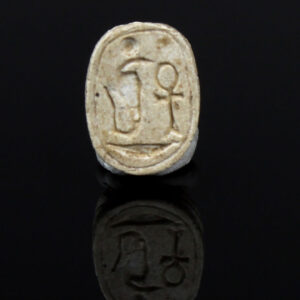Description
| ITEM | Ptah-Sokar-Osiris figure inscribed |
| MATERIAL | Wood |
| CULTURE | Egyptian |
| PERIOD | Ptolemaic period, 305 – 30 B.C |
| DIMENSIONS | 335 mm x 60 mm x 158 mm |
| CONDITION | Good condition |
| PROVENANCE | Ex Dutch private collection, Maastricht, Ex Venduhuis Dickhaut, Maastricht (1996) |
The Ptah-Sokar-Osiris is a composite deity from ancient Egyptian religion, representing the fusion of three gods: Ptah, Sokar, and Osiris. Ptah was the god of creation and craftsmanship, Sokar was associated with the Memphite necropolis and funerary rites, and Osiris was the god of the afterlife and resurrection. This syncretic deity emerged around the Middle Kingdom period (c. 2055-1650 BCE) and became particularly prominent during the Late Period (c. 664-332 BCE). The integration of these gods highlights the Egyptians’ evolving religious beliefs and the importance of combining different aspects of divinity to address the complex nature of life, death, and the afterlife.
Statues of Ptah-Sokar-Osiris were commonly placed in tombs and burial sites, symbolizing protection and the promise of rebirth for the deceased. These statues typically depicted a mummified figure, often with the combined attributes of the three gods: the mummy form from Osiris, the feathered crown from Sokar, and the skullcap and beard from Ptah. Some statues also included inscriptions or were hollow to contain small papyrus scrolls with spells from the Book of the Dead, enhancing their magical and protective functions.
The worship of Ptah-Sokar-Osiris reflects the ancient Egyptians’ deep concern with death and the afterlife, underscoring their belief in resurrection and eternal life. The fusion of these deities allowed worshippers to appeal to the combined powers of creation, protection, and rebirth, ensuring a safe journey to the afterlife.


